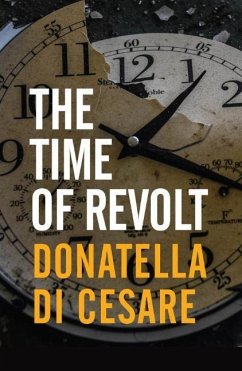As capitalism triumphs on the ruins of utopias and faith in progress fades, revolts are breaking out everywhere. From London to Hong Kong and from Buenos Aires to Beirut, protests flare up, in some cases spreading like wildfire, in other cases petering out and reigniting elsewhere. Not even the pandemic has been able to stop them: as many were reflecting on the loss of public space, the fuse of a fresh explosion was lit in Minneapolis with the brutal murder of George Floyd. We are living in an age of revolt.
But what is revolt? It would be a mistake to think of it as simply an explosion of anger, a spontaneous and irrational outburst, as it is often portrayed in the media. Exploding anger is not a bolt from the blue but a symptom of a social order in which the sovereignty of the state has imposed itself as the sole condition of order. Revolt challenges the sovereignty of the state, whether it is democratic or despotic, exposing the violence that underpins it. Revolt upsets the agenda of power, interrupts time, throws history into disarray. The time of revolt, discontinuous and intermittent, is also a revolt of time, an anarchic transition to a space of time that disengages itself from the architecture of politics.
This brilliant reflection on the nature and significance of revolt will be of interest to students of politics and philosophy and to anyone concerned with the key questions of politics today.
But what is revolt? It would be a mistake to think of it as simply an explosion of anger, a spontaneous and irrational outburst, as it is often portrayed in the media. Exploding anger is not a bolt from the blue but a symptom of a social order in which the sovereignty of the state has imposed itself as the sole condition of order. Revolt challenges the sovereignty of the state, whether it is democratic or despotic, exposing the violence that underpins it. Revolt upsets the agenda of power, interrupts time, throws history into disarray. The time of revolt, discontinuous and intermittent, is also a revolt of time, an anarchic transition to a space of time that disengages itself from the architecture of politics.
This brilliant reflection on the nature and significance of revolt will be of interest to students of politics and philosophy and to anyone concerned with the key questions of politics today.
'Today the future seems impossible. Revolt, Donatella Di Cesare argues, "interrupts time, blows up the agenda of power, halts the routine of dispossession, and sends history off course." In this defence of revolt in fragments, the anarchic conditions of politics are remembered and achingly defended. An essential addition to the inventory of political concepts.'
J. M. Bernstein, The New School for Social Research
J. M. Bernstein, The New School for Social Research








